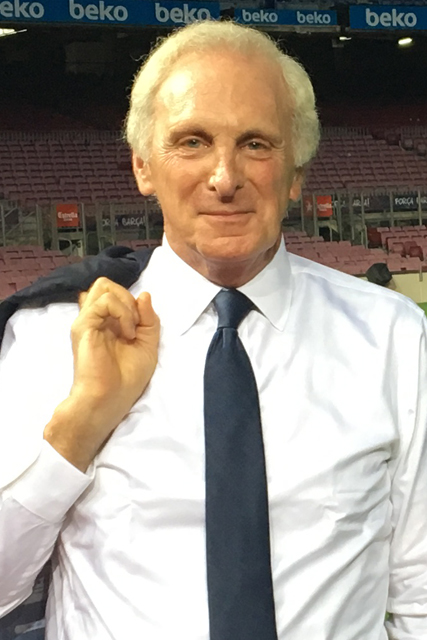Contributor Profiles

Writer
John McKenzie
When I was a boy, my father – Hockey News founder Ken McKenzie – would occasionally bring me to games at the old Montreal Forum, where we’d sit up in the press box. (Free seats. Can’t complain, as Ken would say.)
At the end of the game, Ken often brought me down to the dressing rooms where hockey scribes huddled around players looking for a few good quotes. Ken would walk among them like the VIP he was. As the players were dressing, he’d bark out, “Phil! Phil Esposito! Come over here and say hello to my son, John.” And Phil would quickly and dutifully oblige.
And so it went, time and again. “Bobby! Bobby Hull! Come here and meet my son, John.” These were young men, often from humble backgrounds in remote parts of Canada, playing in the early 1960s on one of the “Original Six” teams in the National Hockey League.
This was the ultimate dream for so many young Canadians, and being mentioned in Ken McKenzie’s Hockey News was part of that dream – something their families back home would all see.
Soon my father was urging me to follow in his footsteps and inherit his growing media empire. But I was determined to make it on my own. After graduating from Indiana University, I returned to Montreal in the early 1970s to take a job as a desk editor at The Canadian Press. I had just turned 20 and was happy to be employed. My real goal, though, was to get into television, and within a few months, the opportunity arose: an on-air reporter job at CFCF-TV in Montreal.
Less pay, more work
The news director, Bert Cannings, a gruff, seasoned professional (think Lou Grant from The Mary Tyler Moore Show), warned me that it was just a four-month vacation-relief contract, and for less money than I was currently making. “I’ll take it,” I replied immediately.
It was baptism by fire. I was on every newscast, covering three or four stories a night. I had never been on camera before, but I learned quickly. Well enough that I was soon offered a job with the CBC affiliate, CBMT. Within a year, I was lured away again – this time to become Montreal Bureau Chief for the CTV Network.
Soon my focus turned to becoming a foreign correspondent for CTV – trench coat and all. “You’re too young,” the senior editors would tell me repeatedly. Yes, I was only 24, but I knew I was ready. And when the rejections kept coming, I politely resigned and went off to graduate school at Harvard. (I thought I might become a diplomat.) But before I could finish my studies, CTV called and finally offered me a job in London.
I’ve always felt at home in foreign countries – much like my mentor, ABC News anchor Peter Jennings. Peter hired me and countless other Canadian reporters. So many that we used to joke that ABC stood for “Another Break for Canadians”.
Warsaw, Moscow, Beirut, Tokyo — I spent months at a time in each of those cities, and many others. When I had my fill of living out of a suitcase, I transferred to ABC’s Boston bureau and eventually to network headquarters in New York where I became Chief Medical Correspondent. (Not that I knew anything about medicine or science, but Peter Jennings valued my ability to take complex subjects and explain them clearly to a broad, diverse audience.)
After 30 years at ABC, I left to start my own production company, travelling through countries less fortunate and showcasing effective development projects that were transforming lives: https://www.johnmckenziemedia.com
Finally, in 2016, I moved to France to become Communications Director for the European Society of Cardiology, and then to the European Cancer Organisation where I am the senior communications consultant.
Memoirs of a foreign correspondent Ken McKenzie: trailblazing publisher